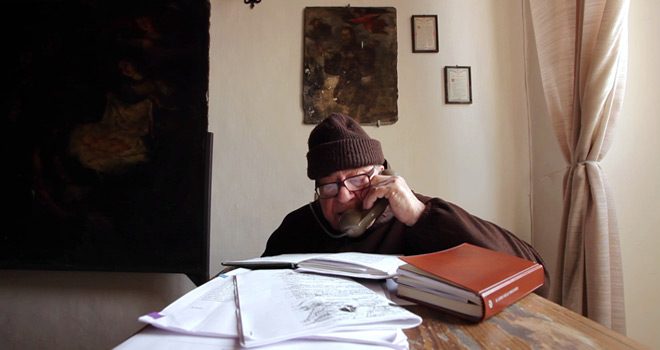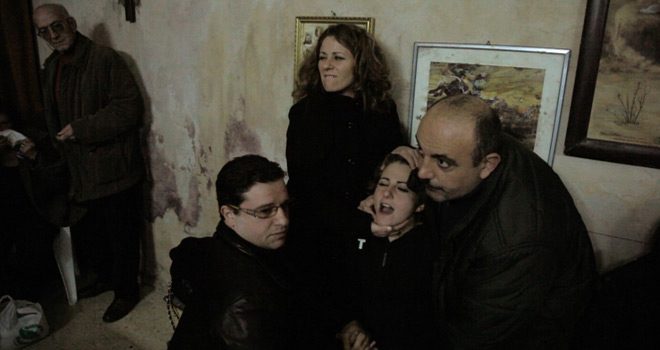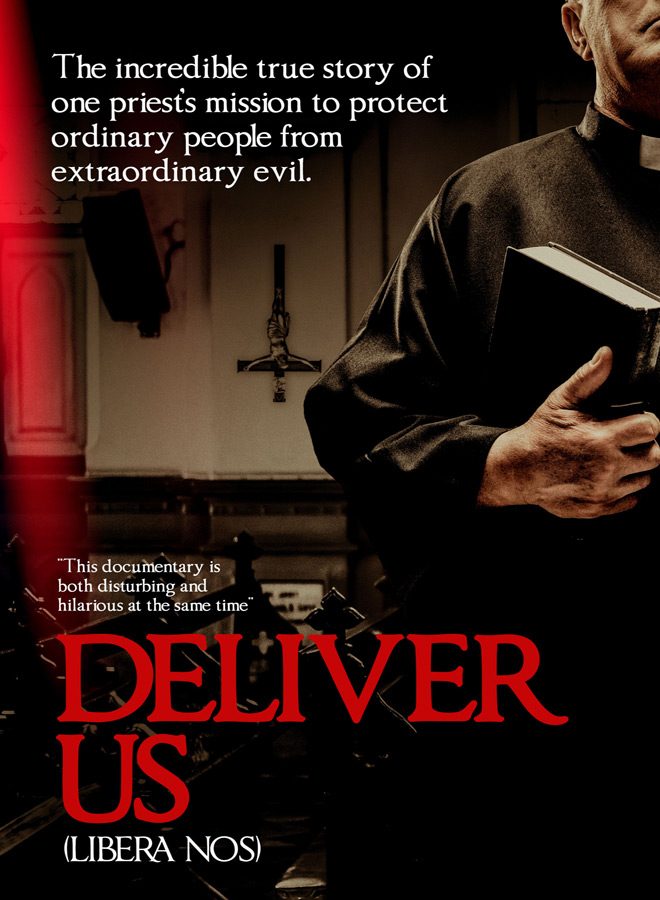From Director Federica Di Giacomo (The Grotesque Side of Life 2006, Housing 2009), Italian-French documentary film Deliver Us aka Libera Nos is unflinching in its subject matter, taking a long hard look at the hundreds of demonic exorcisms still performed around the world today. For those who wish to explore this haunting subject further, the film arrives in select theaters on Friday October 6, 2017, as well as On Demand, thanks to Uncork’d Entertainment.

There is little doubt among aficionados that Horror films can come in a variety of forms – there is the ghost possession Horror movie, there is the slasher Horror movie, there is the evil creature Horror movie, and the list goes on. What audiences do not often focus in on, however, is how different production styles can vary within the Horror niche – there are far more ways to approach the broad genre of Horror than there are with the Thriller genre, for instance.
Horror can be fast, it can be slow, it can be explicit, it can be subtle, it can be loud, it can be quiet, and it can be anything in between all of these. The common idea of Horror as a genre of primarily testosterone-fueled slasher flicks could objectively not be further from the truth – and a film like Deliver Us proves exactly that.
Make no mistake: just because it is a documentary, Deliver Us is most certainly still a Horror film. It just happens to be the patient man’s Horror film – it is slow, meditative, and intentionally filmed to emphasize just those attributes; here these are features, not bugs. The main character is an old man, there is not a jump scare in sight, and not a single well-bosomed teenager gets killed; this is not cheap Horror. This is the thinking person’s Horror, and the fact that it is all real is almost secondary to that.

Interestingly, the Horror is a domain in which the film’s spoken language is greatly beneficial – you might have to read some subtitles, but the entire thing is in Italian – and it gives the film a degree of weight that is almost unfair. Is that just a quirk of where it was produced? Yes, probably. But that does not change the fact that it gives the film a tangible historical connection to it’s demonic subject matter, thematically underscoring the religious connotations that exist in every corner of this piece.
Deliver Us’ entire production is quite understated and it is largely effective; this is not a film about spectacle, it is a film about tight spaces, and what happens when the beings of myth intrude upon a world almost drab in its familiarity. The cinematography, by Greta De Lazzaris and Carlo Sisalli, works toward this, leaning into the cinema verite style of filmmaking that is often present in great works of documentary, the camera just a fly on the wall. There are no clean lines and few tidy beats; people speak over each other, characters move in and out of frame, and, importantly, it’s all done with an amount of artistry that lets the audience know that these are not flubs of amateur filmmaking, but rather the effects of what happens when a documentarian just lets her subject matter unfold in front of her.
It is however something of a shame that the film does not get to explore the exteriors of its environment more – it is mostly a cramped, claustrophobic affair – and while that might be thematically appropriate, it does feel like there were some missed opportunities. The few times the camera does get to take in some Italian exteriors, their natural beauty is well photographed and adds to the film’s specific sense of time and place.

In particular, Father Cataldo is riveting to watch as the main subject of the documentary, carrying on his weathered face all the history of the world around him. Make no mistake: this is a film that is most certainly fixated on the local community it showcases, and how it relates to the unique history of the world they inhabit; Father Cataldo delivers this without a hint of extravagance and the film is all the more powerful for it.
The camera captures the essence of the people in this community with honesty, neither building them up or tearing them down. It does what an effective documentary always does: emphasizes the truth to be found in these people, letting the audience make up their minds about them. It is, again, an approach with manipulative intent and in this way, the film should certainly be further praised for being tonally cohesive: from the performances to even the sound design, nothing feels out-of-sync or overplayed. For this, CrypticRock gives Deliver Us 4 out of 5 stars.






No comment